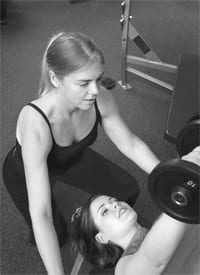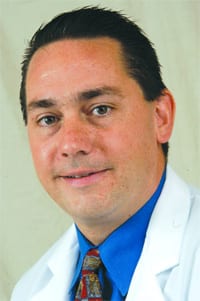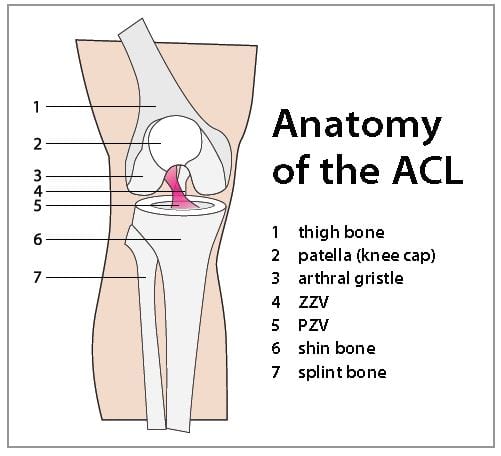Wake-up Call Strong Coffey Personal Training Energizes Body and Mind
The idea of personal training as a career dawned on writer Kelly Coffey at the gym.
She’d already reached a point at which working out had become an outlet for stress — “I never leave a workout feeling any less than excellent,” she said — and while finishing her routine one day, she noticed an overweight woman working with a very fit personal trainer.
“I felt like I morphed into her for a second,” said Coffey, referring not to the hard-bodied professional, but the struggling student. “I thought, if she was training with me, maybe she wouldn’t feel self-conscious. Maybe she’d feel more capable working with someone who’s walked the path already.
“Then I thought, ‘would the old me hire the new me?’” she continued. “The answer was yes — and that’s when I knew I couldn’t go wrong.”
Lessons Learned
Indeed, Coffey’s own journey has become the cornerstone of her new personal training business, Strong Coffey, based in Northampton. Appearances at first belie the many hurdles she has cleared in her lifetime — she looks very much the picture of physical fitness, sporting a slim, muscular physique, sneakers, and Lycra gym clothes.
But Coffey will be the first to tell you, in her own words, that she “didn’t come out of the womb doing jumping jacks.”
Not long ago, she was struggling with both physical and emotional weight that she’d carried for most of her life. She attended her first Weight Watchers meeting at the age of five, and as a college student at Smith, weighed more than 300 pounds.
She has dealt with the myriad issues that accompany obesity, among them poor health and social stigma; searching for a waitressing job while pursuing a degree in English, Coffey was turned away repeatedly before finally being told by one manager that she wasn’t getting hired because of what she looked like.
“He said a restaurant wouldn’t want me representing them at my size,” she recalls. “That didn’t exactly do wonders for my self-esteem. I thought, here I am, a personable, professional person, and I can’t even get a job.”
Experiences like that, and several failed attempts to lose weight and keep it off, eventually prompted Coffey to pursue a $30,000 gastric-bypass procedure at the advice of a physician. With a smaller stomach, she lost weight rapidly, but said the operation did nothing to cure her addiction to food.
“It doesn’t address the emotional issues around food and eating,” she explained. “I equate a food addiction to that of alcohol or drugs, with the understanding that there are varying degrees. Food feeds the same beast.”
She said that after surgery, her stomach stretched to accommodate overeating, and four years later, after sometimes “eating through the pain,” Coffey said the effect her gastric bypass had on her body has been all but negated.
Taking Shape
It did have one positive outcome, however, and that was the need to get up and move not long after the procedure. Blood clots can form in patients who remain sedentary, and she’d already learned of the cardiac dangers of losing and gaining vast amounts of weight. So Coffey began first walking short distances and later dipping a very cautious toe into the workout pool.
“It’s been almost four years since I started working out in earnest,” she said, noting that she began by circuit training at a local Curves franchise. “I was totally self-conscious and totally terrified. I had never been an athlete.”
But it didn’t take long before Curves was no longer a challenge for Coffey, and she began strength and cardio training more seriously. Then came that moment at the gym, and at the peak of her own physical health, Coffey decided it was time to help others learn some of the same lessons she had absorbed.
“We like what makes us feel good,” she said. “We like sugar because it gives us a boost. If we can get to a point where exercise feels as good, at which we’ve gotten a taste and we want more, we’ll go to the gym instead of eating.
“That’s a lesson that has taken me a very long time to learn, and my clients get the benefit of my past experiences.”
The Battle, as a Business
Coffey obtained personal training certification from the American College of Sports Medicine in April of this year, and clients have been signing on for her personalized, real-life approach to weight loss and maintenance ever since.
It’s primarily a one-on-one training business, though Coffey also offers corporate fitness programs and speaking engagements, sharing her story.
Training begins with an initial consultation, and routines are planned based on each client’s abilities and goals. She works out of Universal Health and Fitness in Northampton and at Smith College with members of its campus health facility, and will also travel, for a fee, to several locales across Western Mass.
As the weeks roll on, programs generally change and grow more challenging. To capitalize on Northampton’s robust college community, Coffey also offers money-saving options such as the ‘Double Shot,’ which combines a consultation with a 50-minute workout to get people started; a Double Shot can also be reordered every four weeks or so.
She keeps her client list in a small white binder, and every pupil has his or her own section, filled with specialized programs, goals, and notes on private conversations, all geared toward keeping them on track.
“I tell my clients that there is nothing they could have done that I haven’t done, so tell me everything and don’t be embarrassed or ashamed,” she said. “I like to know what’s going on in their minds and their lives that sabotages their efforts. Being overweight is not just an indication that someone eats too much. There’s a reason why people overeat, and shedding light on those behaviors is often enough to make little changes.”
In addition, Coffey’s inbox is open to her clients — she welcomes E-mails to report on any successes, failures, or just to check in when a craving to load up a plate or skip a workout pops up.
She said she’ll work closely with clients at the beginning of a program, especially when adding cardio to the repertoire, to ensure that they’re working out effectively and safely, but at the same time strives to help them create manageable, realistic fitness regimes that can be sustained for the long haul. She also encourages a stretch before and after each workout, to limber up both the muscles and the mind.
“A stretch after a workout helps to reinforce what you’ve done — you’ve met a goal,” she said. “I encourage everyone to take a moment to reflect on that.”
Moving On Up
The approach has been largely successful for Coffey and her clients. Many are reaching their first set of predetermined goals — most initial programs are a 90-day commitment — ahead of schedule. Others are hearing good prognoses from their physicians, such as a diabetic who saw her readings drop from dangerous levels to within a normal range.
In addition, Coffey’s reach within the community is beginning to expand. She made her living as a freelance writer before delving into training, and now is coupling the two, writing fitness-based articles. One, featured on her alma mater’s Web site, led to a consultancy with Smith, aimed at assisting overweight students.
“I realized that blending these two occupations gives me an opportunity to reflect on my own experiences. It helps me appreciate how hard it was — and how hard it doesn’t have to be.
“This has become a very soul-sustaining occupation for me,” she added. “I feel like there’s no one I can’t help.”
That includes herself — the old Coffey and the new, strong Coffey, who has plenty of energy and even more to say.




Comments are closed.